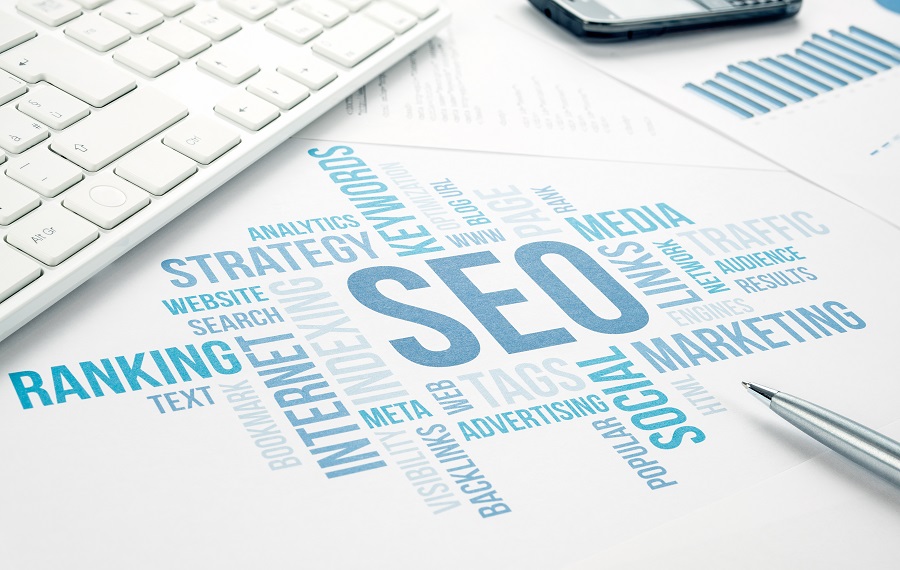26 Jul

Getting found organically through search engines like Google can be the key to scaling your retail business. SEO, or search engine optimization, is the process of improving your website to increase your visibility in search results.
Implementing the right SEO growth strategy can drive a steady flow of free targeted traffic to your site and boost conversions and sales. But with so much information out there, it can be hard to filter out what actually works.
This blog will cover some simple, easy-to-implement SEO growth hacks that really make a difference for retail businesses.
What does SEO stand for in business?
If you want your online business to show up higher in search results and get found by more potential customers, search engine optimization or SEO is essential. But what exactly does SEO stand for?
SEO stands for search engine optimization. The goal of SEO is to improve your website and online presence so search engines like Google can understand and rank your pages higher in their organic or unpaid search results.
As more people turn to search engines to find local businesses, having a good SEO strategy can help drive more organic traffic to your website and store. This traffic can convert into leads and sales with little ongoing cost.
SEO is the process of improving various aspects of your website to meet search engines’ guidelines and requirements. This includes things like:
- Optimizing page titles, URLs, and on-page content with relevant keywords
- Getting high-quality links from relevant websites to boost credibility and domain authority
- Improving website speed, security, and mobile responsiveness
- Following best practices for website structure, images, and metadata
- Monitoring search performance and adapting the SEO strategy over time
A good SEO strategy takes time to implement and needs to be consistent and focused on user experience in addition to search engine optimization. But the benefits in the form of more qualified traffic and sales can justify the investment for growing retail businesses.
Why SEO is important for business?

Here are a few reasons why SEO is important for growing your retail business:
Drive qualified traffic. The majority of people now turn to search engines like Google for their product research before making purchases. By improving your SEO, you can appear higher in search results and drive more targeted traffic to your site from customers actively searching for your products.
Increase organic visibility. Improving SEO marketing for small businesses enables you to appear higher in the organic (non-paid) search results, giving your retail business more visibility to those exact customers searching for what you sell. The higher and more often you appear in search results, the more people will discover your business.
Build trust. The higher you rank organically in search results, the more trustworthy Google considers your website and business to be. This organic trust can help persuade customers to choose your retail store over competitors.
Convert more customers. By driving qualified traffic to your website through SEO, you give more prospects the chance to discover your products, learn more about what you offer, and ultimately make a purchase decision. Higher SEO visibility directly translates to more conversions and sales.
Also Read: Beginner Seo Tips for Your Ecommerce Store
Is SEO worth it for small businesses?
Many small business owners wonder if investing time and money into search engine optimization (SEO) is worth the effort, especially when resources are already limited. The short answer is – yes! SEO can be incredibly beneficial for small businesses, here’s why:
Visibility and Traffic – The main goal of search engine optimization for small businesses is to increase your visibility and ranking in search engines like Google. This translates to more organic traffic from searchers that are actively looking for your products or services. Even a small increase in organic traffic from search can result in considerable new customers and sales.
Low Cost – While full-fledged SEO campaigns can get expensive, small businesses can start with simple and low-cost SEO tactics that only require some of their own time. Optimizing your website’s title tags, meta descriptions, internal linking, and keyword research are all free or low-cost SEO help for small businesses that can provide benefits.
Long-Term Impact – SEO is an investment that pays dividends for years, as long as you maintain your rankings. Once you rank for targeted keywords, you’ll continue to get traffic from those keywords on an ongoing basis. This provides a steadier stream of visibility and leads compared to other marketing channels.
It Boosts All Marketing – An optimized website and online presence enhances the impact of all your other marketing efforts like social media, email, and ads. People are more likely to click on your social posts, newsletters, and ads when they find you through SEO first.
Scale your retail business with these easy SEO growth hacks

1. Hacking for backlinks
It is a method of obtaining links from other websites. The backbone of SEO is backlinks or linkages from other websites to your site. A website will never appear on the first page of Google’s search results unless it has at least some online reviews and a few backlinks.
- Directories: Add your website to directories such as Google My Business, Yelp, G2, Capterra, review sites, small business alliances, and sites like AllTop. Every relevant industry directory should have profiles with hyperlinks to your site!
- Posting as a guest: Look for blogs that welcome guest posts. Send them an email, write an interesting piece, and include a couple of links to your website. Begin registering now! Bias toward opportunities on high-domain-authority websites (DA). To determine a site’s DA, you may use a program like GrowthBar (0-100).
- Internal hyperlinks: That’s correct. When you link within your material, it enhances SEO for your small business.
2. Optimize your site for both users and search engines
Search engines want websites that are easy to crawl and index, so that they can understand your content and rank higher. But, that alone is not enough, your site also needs to be easy to navigate and use for customers. Focus on clean and simple designs, shorten page load times, and use mobile-friendly layouts. Ensure pages have descriptive titles and URLs, include important keywords naturally in content, and ad internal links between pages. This will help both search engine bots and real users find the information they need fast and easily, helping your retail website convert more visitors.
3. Keyword analysis
This is another excellent practice, yet it’s surprising how many people overlook it. Brainstorming and identifying prospective target search queries are the first steps in keyword research. After you’ve come up with a few fascinating keywords, use an SEO software program like Moz, Ahrefs, or GrowthBar to discover how competitive they are.
4. Using Google Ads to prioritize keywords
Keyword research is critical, but there are a million different keywords to choose from. It isn’t easy to decide which ones to pursue first.
However, one of my favorite ways to prioritize keywords is to look at what my rivals are bidding on in Google Ads. After all, if they’re ready to pay for traffic, it’s a safe bet that it’ll be lucrative organically.
Also Read: How Retail Marketing Brings in New Customers and Keeps Existing Customers
5. Keep your pages to a minimum
Google favors websites with high-quality, accurate, and easy-to-understand content.
However, it prefers basic websites. Every website has a “crawl budget,” which specifies how many pages Google will crawl in a specific time. As a result, if you have a massive website with many pages, Google will take a long time to scan your complete site (weeks or more). As a result, new material will not rank as rapidly as old content and improvements to existing content may be ineffective.
Removing pages from your sitemap does not imply that they are no longer available. Users can still access them, but Google will ignore them and stop allocating crawl funding to them.
6. Featured snippets on Google
The highlighted listings at the top of the search engine results page are Google Featured Snippets. They display before the #1 search result, meaning your Google listing will get more clicks if you reach that spot.
7. Local search engine optimization
Local SEO isn’t as effective as it once was. Yelp, Google’s own Google Listings, and large corporations with millions of perfectly optimized local pages have saturated most local search verticals. However, in some verticals, you may still win local searches. Retail SEO would be a better option in this matter.
8. Competitors
Get a competitive advantage. There are several things you may learn from a firm that dominates SEO in your industry:
- Go to their channel and monitor their activity. Find out what keywords they’re using in their writing, and there’s a strong possibility you should be using the same terms.
- Take a look at their Google rankings, you should be able to see commonalities such as content type, word count, and then the use of graphics and video, and so forth. Isn’t it possible that Google appreciates anything about your content?
- Another way to get your rivals’ visitors to come to your site is to write a roundup or listicle about them. With “versus” postings, we’ve had a lot of success. These are blogs in which we compare one rival to another in order to help you gain clients by using your competitors’ brand names.
How much does SEO cost for a small business?
SEO can seem intimidating and expensive for small businesses, but there are actually affordable options to get you started. Here are some of the costs you can expect:
Do-It-Yourself SEO – $0 to $500 per month
The cheapest option is doing SEO yourself. You can optimize your website’s on-page SEO (titles, meta descriptions, images, etc), build internal and external links, and create engaging content. All you need is some time to learn the basics. For more comprehensive efforts, you’ll likely need online SEO tools that cost $50 to $500 per month.
Local Agency or Freelancer – $500 to $2,000 per month
If DIY SEO is overwhelming, hiring a local SEO agency or freelancer is a more hands-off option. Expect to pay around $500 to $2,000 per month, depending on the scope of work and their experience. They can handle the full range of on-page and off-page SEO tasks to improve your organic rankings.
Large SEO Firm – $2,000 to $10,000+ per month
Hiring an established SEO firm will likely cost more but they have more resources and expertise to generate faster results. Budget $2,000 per month as a starting point. The costs will go up based on the complexity of your website, the number of keywords, and how quickly you want results.
Conclusion
Google has been around for almost more than two decades, and while its algorithm will continue to evolve, keep in mind that its primary purpose is to provide the best possible material to Google employees. Your SEO for the business website should do wonders for your brand.
Consider implementing Hana Retail as your POS system to gain numerous benefits for marketing and sales. With actionable data and insights, an optimized product catalog, and improved customer experience, Hana Retail can help supercharge your marketing, drive higher sales, and scale your retail operations. Sign up FREE today!





